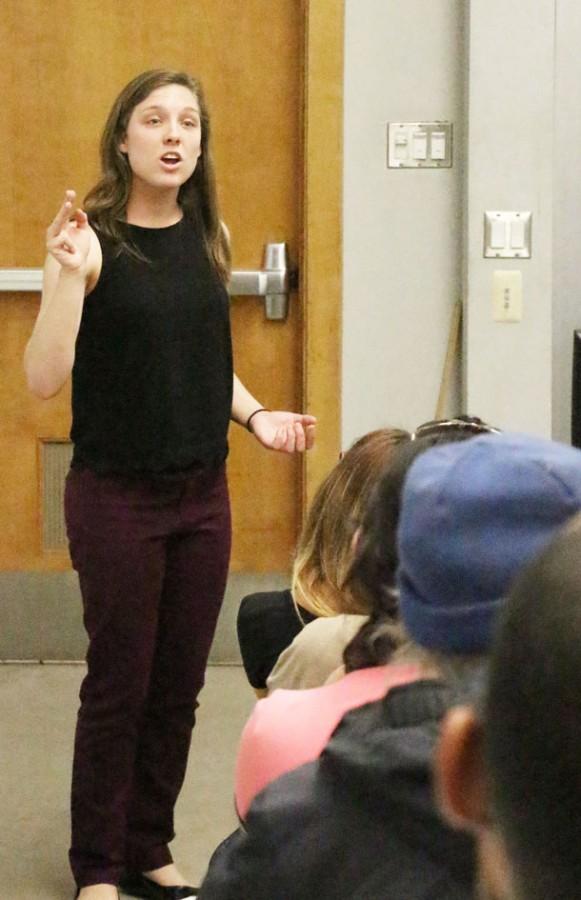Taylor Herren came to Bakersfield College to discuss the need for women to have equality in our society at the Women’s History and More “Pushing Boundaries” event on March 19.
Herren is a student at California State University, Chico, but most importantly, she is a feminist. She came to BC to pose questions that would push people to really think and discuss the issues at hand.
Herren started off the discussion with the question of why we celebrate Women’s History Month.
The audience answered with awareness. Herren agreed and then said, “The history that we’ve been taught has been built in the hands of the white man.” She went on to explain that recognition for women was not given through history, and it is now time that we recognize women for what they have done.
Herren had the audience get in small groups and tell a quick story of a woman in their life.
After the short discussion, Herren said, “Sometimes it’s hard to grasp the big issues, but it is easier when we ground ourselves with an example from people that are close to us.” She explained that telling these stories is a way to show recognition to women during Women’s History Month.
Herren asked how is feminism defined. She said, “Someone who believes in equal rights for all.”
Herren said that women in the work force earn 77 percent of what their male counterparts earn. She also said that women hold less than 20 percent of congressional seats.
She asked why women aren’t being elected and how should people get them elected. BC student Alexandria Thomas said, “It’s if they have the knowledge to utilize the forces around them… That’s how you get your women elected. You start voting and doing your research.”
Herren explains that when people see women in professional settings and in leadership roles that people need to support them. She not only wants people to support them but to hold them to the same standard that they would hold their male counterparts.
Herren concluded with challenging all people to keep the conversation going. By this she means that she wants people to question others on what they say and do. Her example was next time you’re with a group of men and women and someone says “Hey guys” you should ask them why they said that. It would bring up the conversation of women being inferior to men and how society keeps it that way through language and actions. “Language is unbelievably powerful,” said Herren.


